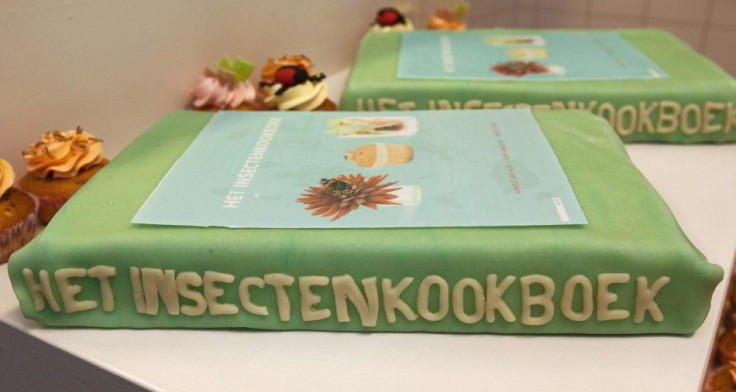Ohio Insect Farm Turns Crickets Into Flour For Tortillas

The first farm to breed insects for human consumption has opened in an abandoned warehouse in rural Ohio.
Big Cricket Farms, the company breeding the insects, is working with a Boston-based insect food start-up, Six Foods, which will grind crickets down into "flour" and turn them into cricket chips, or "chirps."
The creators of Six Foods believe that by blending the crickets with other more familiar ingredients they will be able to overcome the disgust that puts many off the idea of eating a bug, while creating a snack that tastes familiar but is rich in protein.
"We realized people aren't going to eat insects as long as they could see what it was," explained Laura D'Asaro, co-founder of Six Foods, which is one of several companies hoping to tap the potential of bugs as a cheap and environmentally sustainable source of nutrition.
Last year, the UN released a report showing that insects can be farmed more efficiently than livestock as a protein source.
While it takes 22 pounds of feed to get about 2 pounds of beef, for example, it only takes 3.75 pounds of feed to produce a 2 pounds of cricket. Pound for pound, insect farming emits 1 percent of the greenhouse gases produced in rearing sheep or cattle, and requires far less water.
However, there are obstacles apart from human squeamishness to overcome if insects are to be successfully farmed for the human diet.
Experts believe that more research into the pathogens that affect insects is needed, and more should be known about their diets before they can be successfully included in the human food chain.
The insects farmed until now have been bred for pet food, which is not subject to the same level of scrutiny as food meant for human consumption.
"Some of those places are feeding their insects gone-off dog food, and that's obviously not OK for human consumption," Kevin Bachhuber, founder of Big Cricket Farms, told New Scientist.
He said that the faintest scandal that illnesses had been caused by a link in the insect-to-human food chain could destroy the new-born industry.
"Farming insects is risky, and we can't afford the remotest chance that our insects are contaminated with feed that's not fit for humans."
Paul Rozin, who studies the psychology of disgust at the University of Pennsylvania, told the journal that foods previously regarded as strange, such as sushi, became popular after first being fashionable with a wealthy elite. However, he said that if major corporations were to start using food sources such as cricket flour, it could revolutionize perceptions.
"If Pepsico starts using cricket flour as 3 percent of Cheetos, then you've got a major impact."
© Copyright IBTimes 2024. All rights reserved.





















